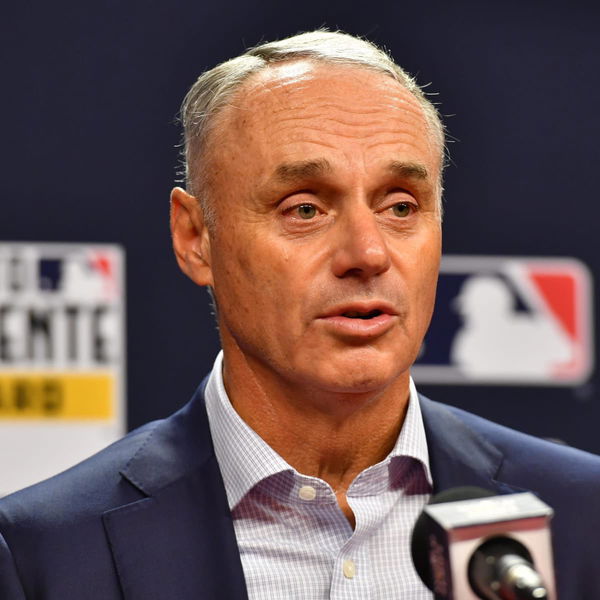

The Los Angeles Dodgers’ seemingly endless spending spree has sparked a familiar debate: Should the MLB implement a salary cap? With the Dodgers, along with other big-market teams, able to spend as freely as they want, there’s growing concern about the widening gap between these high-spending powerhouses and smaller-market clubs. The disparity is becoming increasingly apparent, as teams like the Pirates, Athletics, or Marlins simply can’t compete financially, leading to frustration across the league. But despite the calls for a salary cap, senior insider Ken Rosenthal recently pointed out that implementing one would be far from simple.
It’s a delicate issue that could have serious repercussions for sports. Rosenthal suggests that pushing for a cap could trigger a major labor dispute, potentially leading to a strike or work stoppage, something both the MLB Players Association (MLBPA) and the league are desperate to avoid. On the Foul Territory podcast, Ken Rosenthal stated, “If a cap is instituted it would be accompanied by a floor, and I don’t know that the union is ever going to agree to this kind of thing. They want the free market system.”
Rosenthal’s comments highlight the significant divide between owners and the players’ union. The owners favor a cap to address financial imbalances and create parity, and the union defends the free-market system that allows players to earn based on their individual talent and market value. The potential for a work stoppage underscores the delicate balance MLB must strike between competitive fairness and preserving the players’ ability to negotiate desirable contracts. “Well, you’d be cutting your own throat” he added.
ADVERTISEMENT
Article continues below this ad
"Well, you'd be cutting your own throat"@Ken_Rosenthal explains why a salary cap could lead to a work stoppage, which would be terrible for baseball. pic.twitter.com/ozgNoS6nGn
— Foul Territory (@FoulTerritoryTV) December 3, 2024
ADVERTISEMENT
Article continues below this ad
Ken Rosenthal also touched on the possibility of finding a middle ground between players and owners regarding a salary cap, asking, “At the same time is there a number, a percentage of the revenue where the players will be more intrigued? And if the owners want a cap, usually these things, it’s 50 to 55% of the revenue goes to the players; well, maybe the players get a little bit more in baseball because they are agreeing to it.” This statement suggests that while players are against a salary cap, there could be room for negotiation if they were to receive a larger share of revenue in exchange for accepting some form of financial constraint—it’s a potential compromise.
The last time we saw a major work stoppage was the 1994 strike
The strike had long-lasting negative effects on the sport, including a fractured relationship with fans. The 1994 MLB strike was triggered when owners proposed a salary cap to the Players Association, citing the financial struggles of small-market teams and the need for drastic measures. There was a sharp decline in the league’s popularity. After years of growth and increasing attention, particularly with young stars like Shohei Ohtani and Aaron Judge bringing excitement back to the game, baseball is at a good point.
ADVERTISEMENT
Article continues below this ad
When Major League Baseball players went on strike, they ultimately wiped out the remainder of the season and, for the first time in history, the World Series. The strike lasted a grueling 232 days. It stretched through spring training and into the 1995 season, making it the longest work stoppage in MLB history. In total, 948 games were canceled. MLB became the first North American professional sports league to lose an entire postseason to a labor dispute. The situation was further complicated by the absence of a permanent commissioner.
What’s your perspective on:
Is MLB's lack of a salary cap ruining the game for small-market teams and their fans?
Have an interesting take?
Faye Vincent had been ousted nearly two years earlier, leaving Bud Selig as acting commissioner. MLBPA chief Donald Fehr, already skeptical of Selig, rejected the owners’ proposal in late July, which included eliminating salary arbitration and adjusting free agency rules. With the expiration of the Collective Bargaining Agreement at the end of 1993, negotiations faltered. By mid-September, after several failed attempts, the 1994 season was officially canceled. The strike cost the league an estimated $580 million in lost revenue and $230 million in player salaries, marking one of the most damaging labor disputes in sports history.
ADVERTISEMENT
ADVERTISEMENT
ADVERTISEMENT
ADVERTISEMENT


Is MLB's lack of a salary cap ruining the game for small-market teams and their fans?